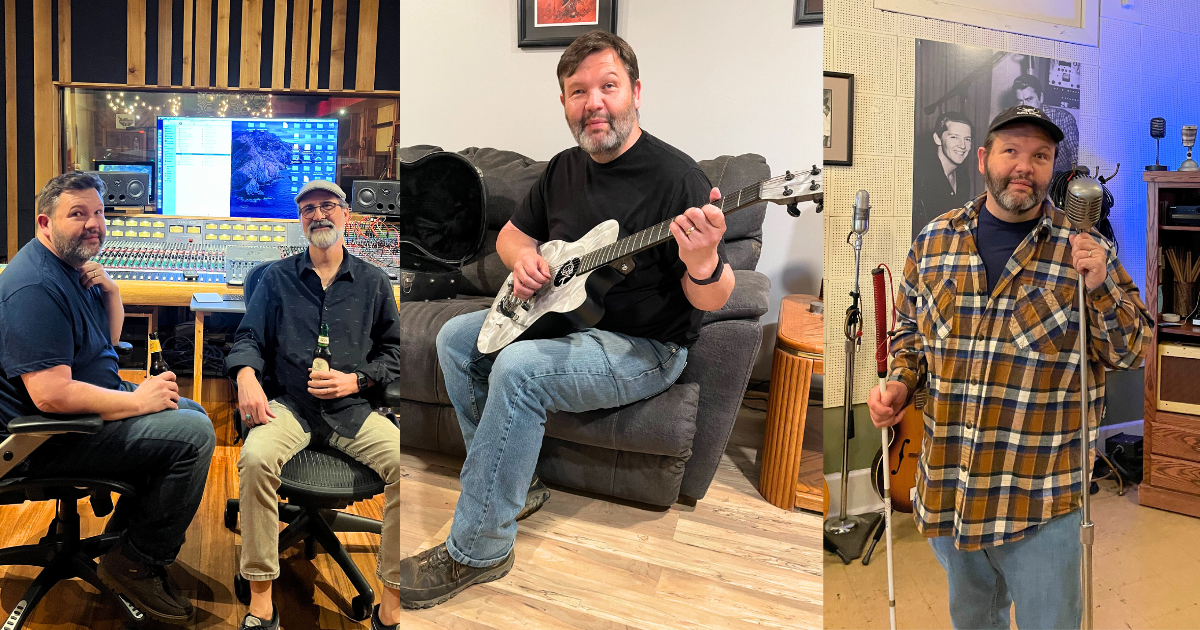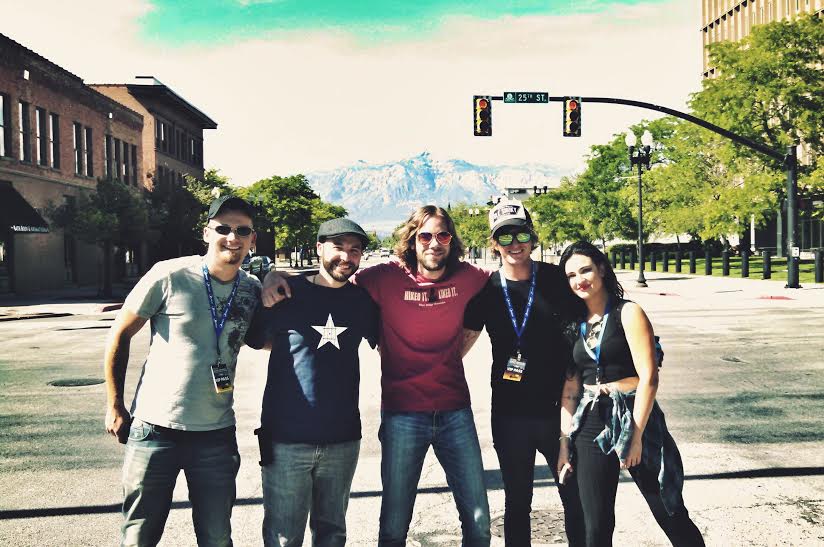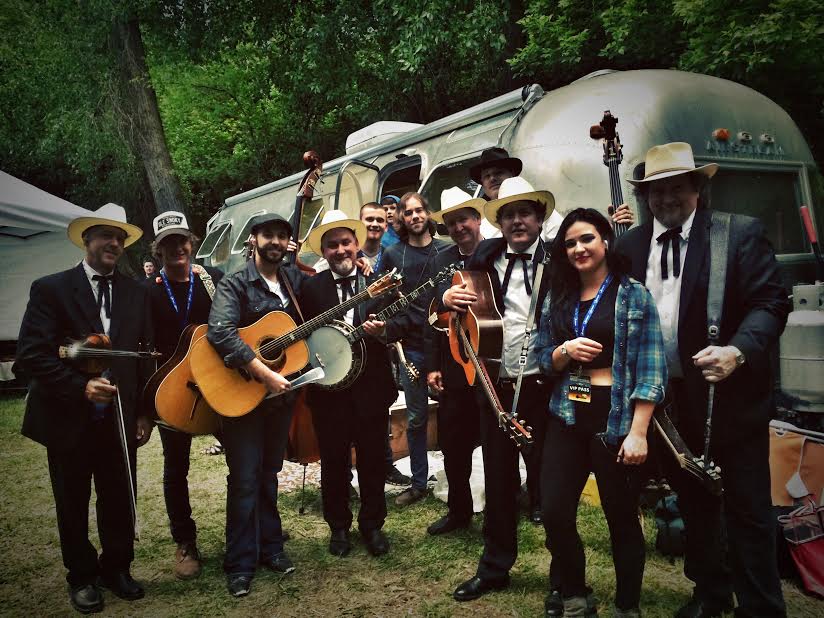Our weekly premiere round-up kicks off this fine Friday with a new video from singer-songwriter Kelley Mickwee from her upcoming release; it’s the title track and her favorite song from her upcoming album, “Everything Beautiful.”
We continue with some bluegrassy old-time from duo Golden Shoals, showcasing “Milwaukee Blues,” a staple on their set lists and at their live performances. And, fellow bluegrass artist and songwriter Mason Via brings us his brand new single co-written with Charlie Chamberlain entitled, “Falling.”
To wrap up the week in premieres, don’t miss two new BGS-produced video sessions that hit the site this week. First, the latest in our Yamaha Sessions featuring shredder Trey Hensley, followed up by a bonus DelFest Session from Mountain Grass Unit celebrating their new EP, which dropped today.
It’s all right here on BGS and frankly, You Gotta Hear This!
Kelley Mickwee, “Everything Beautiful”
Artist: Kelley Mickwee
Hometown: Austin, Texas
Song: “Everything Beautiful”
Album: Everything Beautiful
Release Date: September 27, 2024
Label: Kelley Mickwee Music
In Their Words: “My favorite track on the record. A love song, which are rare and hard for me to write. This one started as a poem, sitting on my back porch one late afternoon as the dragonflies swarmed the yard and the hummingbirds fought over the feeder. I was all of a sudden just overcome with such deep love in my heart. Sent some words to my dear friend, Seth Walker, and he put this beautiful melody to it before I even woke up. It’s the first song we have written together of what I hope is many more to come.” – Kelley Mickwee
Golden Shoals, “Milwaukee Blues”
Artist: Golden Shoals
Hometown: Nashville, Tennessee and Vancouver, British Columbia, Canada
Song: “Milwaukee Blues”
Release Date: September 27, 2024
In Their Words: “‘Milwaukee Blues’ has been a staple of our live show for years. It’s got a fun, silly vibe, but it’s about the very real perils of hoboing in the 1920s. That smiling on the outside/crying on the inside dichotomy is one of the most fascinating things about bluegrass and old-time music. Though we focus more on our original songs, our early tours were always based around fiddler’s conventions – Mt. Airy, Galax, Clifftop, etc. Playing old fiddle tunes and songs is how we started to forge our own sound and how we met our dearest musical pals. We’ve released collaborative old-time albums before (Milkers and Hollers and Tune Hash), but this is our first time stripping it down to the duo. We usually do one or two of these tunes at each show and we wanted to get them down for posterity, and for the old-time fans! Tracks will continue to trickle out over the next year, culminating in a full 14-track album.” – Mark Kilianski
Mason Via, “Falling”
Artist: Mason Via
Hometown: Nashville, Tennessee
Song: “Falling”
Album: Mason Via
Release Date: September 20, 2024 (single)
Label: Mountain Fever Records
In Their Words: “I co-wrote this song with Charlie Chamberlain, who’s known for his work on several Songs From The Road Band albums. We initially crafted this track as a companion piece to ‘Melt in the Sun,’ another song on the upcoming record. Originally, we intended for it to be recorded with my psychedelic electric side project as a rock and roll party anthem. It wasn’t planned for this bluegrass album, but after bassist and dobro player Jeff Partin singled it out as his favorite from the extensive list of songs I shared with him and the producer, I decided to include it at the last minute. I’m glad we included it because it blends that distinctive Mountain Heart newgrass drive with lyrics that are perfect for getting people moving.” – Mason Via
Track Credits:
Written by Mason Via & Charlie Chamberlain.
Mason Via – Lead vocals, guitar
Aaron Ramsey – Mandolin
Jason Davis – Banjo
Jim Van Cleve – Fiddle
Jeff Partin – Bass, Dobro
Kyser George – Guitar
Brooks Forsyth – Baritone harmony
Nick Goad – Tenor harmony
Yamaha Sessions: Trey Hensley, “Can’t Outrun the Blues”
Our Yamaha Sessions continue, highlighting the top-notch Yamaha FG series of acoustic guitars and the killer musicians who utilize them. This time, we’re back with guitarist, singer-songwriter, GRAMMY nominee, and reigning IBMA Guitar Player of the Year Trey Hensley. For his second session in the series, he performs a growling original, “Can’t Outrun the Blues,” that highlights the grit and attack of his custom Yamaha FG9 R, resonant and bold in open E.
Hensley’s techniques are bluegrass through and through, with clarity and athleticism to his flatpicking that stand out even among his incredibly talented contemporaries. The ‘grassy skeletal structure behind his approach to the instrument is merely a springboard into other textures and styles. Here, in a modal and bluesy number, you can certainly hear the influence rock and roll, down home and contemporary blues, Southern rock, and country chicken pickin’ have on Hensley’s own writing and composition.
DelFest Sessions: Mountain Grass Unit, “Lonesome Dove”
For a special bonus edition of our DelFest Sessions from earlier this year, we return to Cumberland, Maryland and the banks of the Potomac River for an encore performance by bluegrass four-piece, Mountain Grass Unit. On September 20, the group will release a brand new EP, Runnin’ From Trouble, which features this original number, “Lonesome Dove,” as the lead track. In fact, at the time of the session’s taping, the band had just recorded the song a week prior.
“We had an amazing time at the riverside DelFest Session performing our new song, ‘Lonesome Dove,'” said mandolinist Drury Anderson via email. “Watching people float down the river while we recorded made the experience even more special. It was an honor to be part of such a unique series!”
Photo Credit: Mason Via by Michael Weintrob; Golden Shoals by Mike Dunn.






